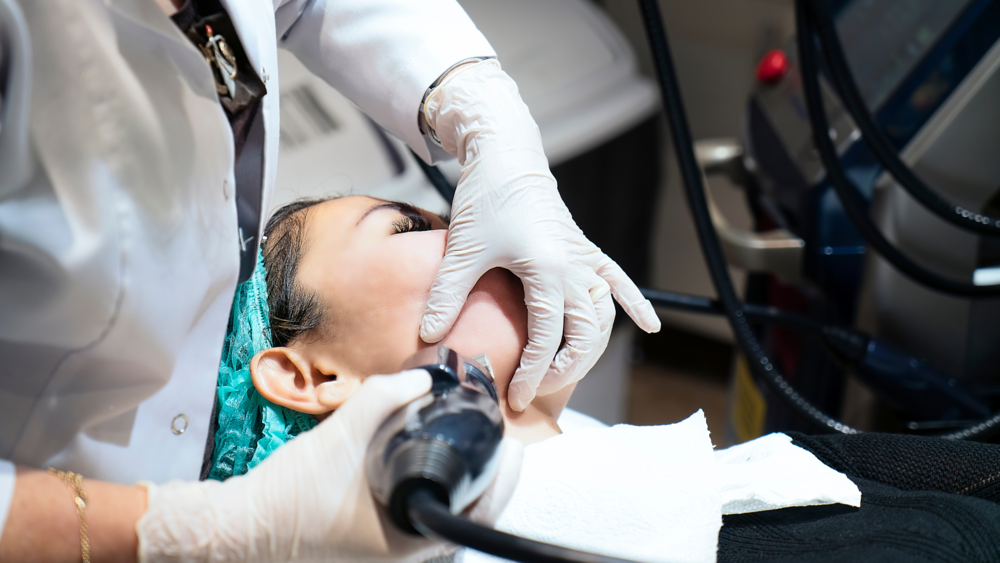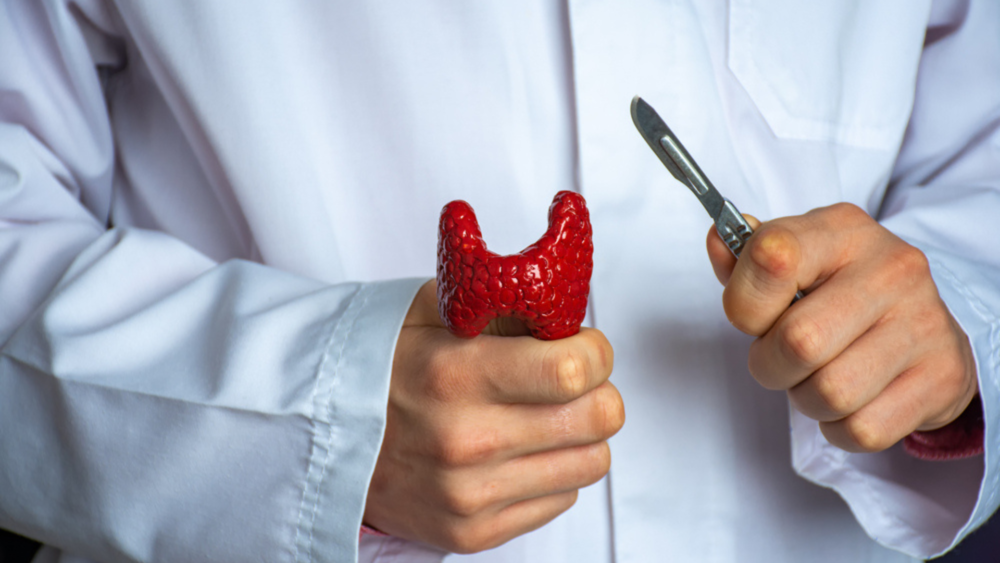Four Most Important Facts About Thyroid Cysts

Thyroid cysts are quite common and are almost always benign. Large thyroid cysts can become very noticeable and be symptomatic simply because of their size. There have been many approaches to manage thyroid cysts over time. In some circumstances, surgery or ablative approaches are indicated when thyroid cysts are large or causing symptoms.
The Four Most Important Facts About Thyroid Cysts

#1 Most Important Fact About Thyroid Cysts: Almost all thyroid cysts are benign
Pure thyroid cysts are almost uniformly benign. Therefore the concern for a thyroid cancer is routinely minimized. Thyroid cysts are full of fluid that contains a material called colloid. Colloid filled thyroid cysts contain a small protein that is found within normal thyroid glands called thyroglobulin. If a person checks their blood for this same protein, it will often be elevated above normal levels. Thyroid cysts may be found as an isolated finding or individuals may have multiple thyroid cysts.
#2 Most Important Fact About Thyroid Cysts: Thyroid medication or aspiration of the fluid component of the cyst does not resolve the cyst
When thyroid cysts become large, they can become visible or cause symptoms most commonly a sense of a lump in the throat or changes in swallowing. Over the years, giving patients thyroid hormone to attempt to reduce the production of the fluid center of the thyroid cyst have been used and uniformly found to be ineffective. In addition, aspiration of the cyst fluid temporarily reduces the cyst volume and thyroid cyst symptoms, however return of the thyroid cyst content is almost uniformly observed.
#3 Most Important Fact About Thyroid Cysts: Ablation of thyroid cysts can control symptomatic thyroid cysts in some circumstances
Ablation of thyroid cysts has been shown to have varying degrees of success over the years. In the past, alcohol ablation of thyroid cysts has been used but has decreased in its therapeutic enthusiasm. In order to effectively ablate a thyroid cyst, a majority of the cyst content needs to be removed with aspiration and then alcohol is then delivered into the thyroid cyst. Another more recent ablative technique called RFA (radiofrequency ablation) has been developed. This technique also uses ultrasound to visualize the thyroid cyst and then deliver a radiofrequency to kill or ablate the cells which line and produce the cyst. The benefit of both of these approaches is that normal thyroid tissue can be spared.
.png)
#4 Most Important Fact About Thyroid Cysts: Partial thyroid surgery effectively removes symptomatic thyroid cysts
Thyroid cysts which are large and visibly noticeable or causing other symptoms may present for surgery. In most circumstances, attempts have been made to control the thyroid cysts. Thyroid surgery for a large thyroid cyst requires that the entire thyroid cyst and its lining be completely removed. Thyroid surgery for a thyroid cyst cures the process and spares normal thyroid tissue. Only expert thyroid surgeons should perform thyroid surgery in order to avoid the potential complications among inexperienced thyroid surgeons.
.png)
Learn more about becoming our patient.
Bonus! #5 Most Important Fact About Thyroid Cysts: Thyroid cysts which have a solid component must be analyzed from the solid component of the cyst
Thyroid cysts which have a solid component are not uniformly benign. When an expert ultrasound of the thyroid cyst is performed and a solid portion is noted, this solid portion of the thyroid cyst should be the focus of the examination. The characteristics of the solid portion of the thyroid cyst must be analyzed for blood flow, small calcifications and its ultrasonographic appearance. Needle biopsy of the solid component of the thyroid cyst should be performed if there are concerns regarding its appearance in order to evaluate for the potential of thyroid cancer.
Additional Resources
- Become our patient by filling out the form at this link.
- Learn more about The Clayman Thyroid Center here.
- Learn more about our sister surgeons at the Scarless Thyroid Surgery Center, Norman Parathyroid Center, and Carling Adrenal Center
- Learn more about the Hospital for Endocrine Surgery.